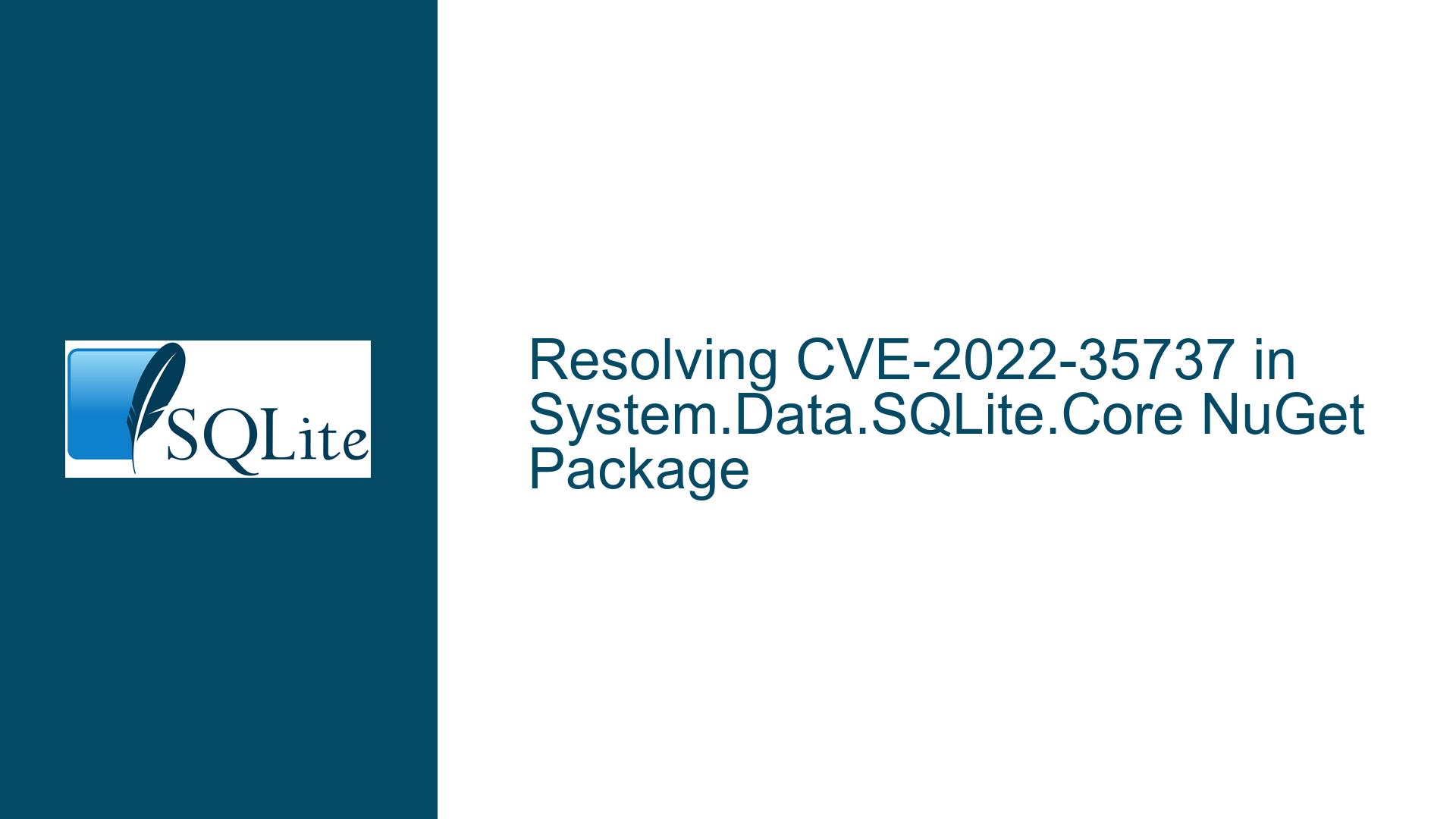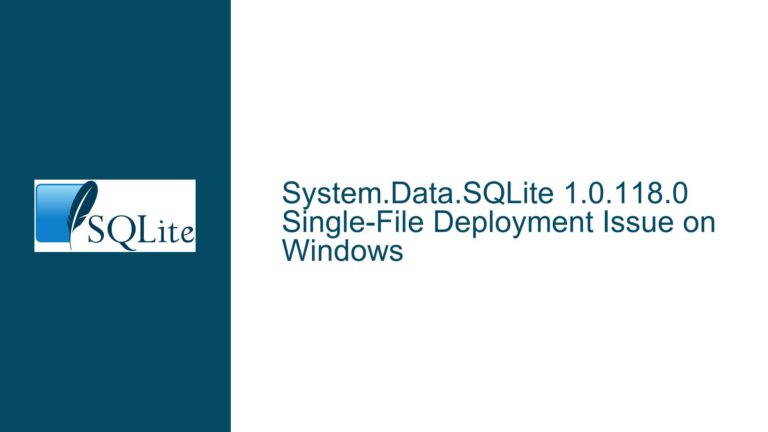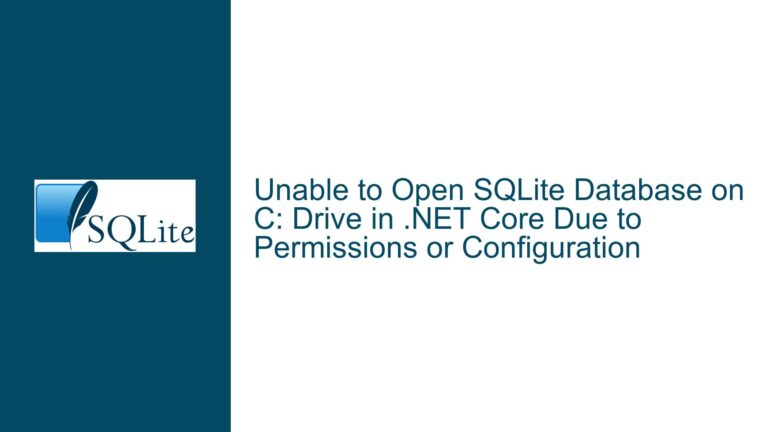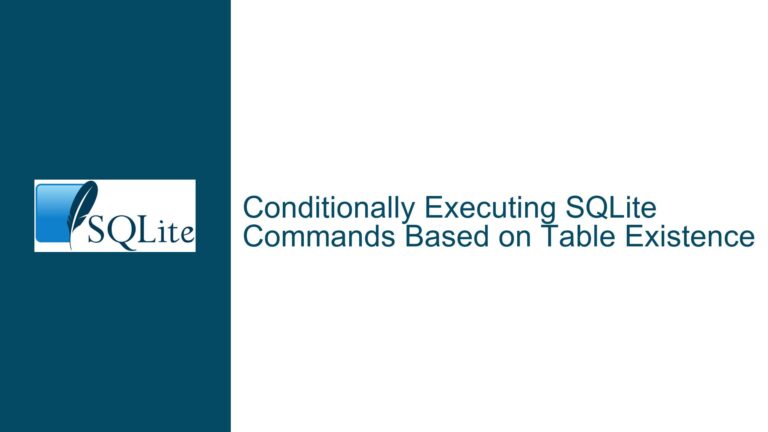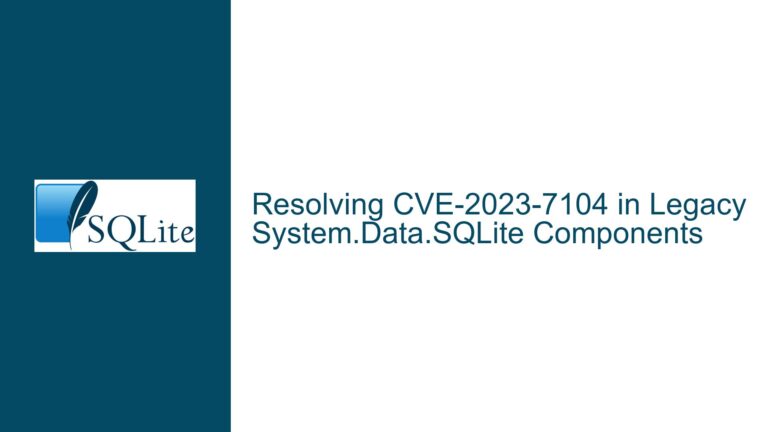Resolving CVE-2022-35737 in System.Data.SQLite.Core NuGet Package
Security Vulnerability in Outdated SQLite Version within System.Data.SQLite.Core
The System.Data.SQLite.Core NuGet package is a critical dependency for .NET applications that interact with SQLite databases. A security vulnerability (CVE-2022-35737) was identified in SQLite versions prior to 3.39.2, which allows attackers to trigger a denial-of-service (DoS) condition or execute arbitrary code via crafted SQL queries involving the printf() function’s format string handling. The vulnerability stems from insufficient input validation in the SQLite library’s internal string formatting utilities. Applications using the System.Data.SQLite.Core NuGet package version 1.0.116 or earlier inherit SQLite version 3.38.5.1, which does not include the patch for this CVE. Security scans detecting this vulnerability create compliance risks, particularly in environments requiring adherence to standards like NIST-SP800-53 or ISO 27001. The urgency to upgrade the SQLite engine within the NuGet package is heightened by the public availability of proof-of-concept exploits targeting CVE-2022-35737. Organizations relying on the System.Data.SQLite.Core package must address this vulnerability to prevent potential exploitation and ensure continuity in deployment pipelines.
Delays in NuGet Package Updates for SQLite Security Patches
The System.Data.SQLite.Core NuGet package is maintained independently of the SQLite engine’s release cycle. While SQLite.org publishes source code updates promptly, NuGet package maintainers must integrate these updates into the .NET wrapper, rebuild binaries, and validate compatibility. This process introduces delays due to several factors. First, the System.Data.SQLite.Core package relies on a hybrid architecture combining managed .NET code with native SQLite binaries. Upgrading the SQLite engine requires recompiling platform-specific native libraries (e.g., win-x86, linux-arm64) and ensuring interoperability with the existing managed layer. Second, the maintainers may prioritize stability over immediacy; thorough testing is required to confirm that SQLite 3.39.2+ does not introduce breaking changes in common .NET workflows, such as Entity Framework Core integration or transaction management. Third, resource constraints or shifting priorities within the maintenance team can further delay updates. Additionally, the lack of a publicly documented timeline for NuGet package updates exacerbates uncertainty for developers. Organizations often assume NuGet packages track upstream SQLite releases closely, but this is not always the case. The disconnect between SQLite’s rapid security patching and the NuGet package’s slower update cadence creates a window of exposure that enterprises must mitigate proactively.
Upgrading SQLite Dependency in .NET Applications via NuGet
To resolve CVE-2022-35737, developers must ensure their .NET applications reference a version of the System.Data.SQLite.Core NuGet package that embeds SQLite 3.39.2 or later. Begin by auditing the current dependency chain using the NuGet Package Manager Console in Visual Studio with the command Get-Package -ProjectName <ProjectName>. If System.Data.SQLite.Core is pinned to version 1.0.116, check the NuGet repository for newer releases. As of November 2022, no official update was available, but subsequent releases may have addressed this. If an updated package exists, migrate using Update-Package System.Data.SQLite.Core -Version <NewVersion>. If no update is available, consider these alternatives:
Manual SQLite Engine Replacement:
Download the precompiled SQLite 3.39.2+ binaries from SQLite.org and replace the native libraries in the NuGet package’sruntimesdirectory. Overwrite files likee_sqlite3.dll(Windows) orlibe_sqlite3.so(Linux) while ensuring architecture-specific subdirectories (e.g.,win-x64,linux-arm) are updated. Rebuild the project to test for compatibility issues.Custom NuGet Package Build:
Clone the System.Data.SQLite.Core GitHub repository, modify the SQLite amalgamation source code to version 3.39.2+, and compile the native libraries using platform toolchains (e.g., MSVC for Windows, GCC for Linux). Repackage the managed and native components into a custom NuGet package usingnuget pack.Transition to Microsoft.Data.Sqlite:
Migrate from System.Data.SQLite.Core to Microsoft’s official Microsoft.Data.Sqlite package, which typically adopts newer SQLite versions faster. Refactor data access layers to align with Microsoft’s APIs, noting differences in connection string formatting and parameter binding.Temporary Mitigations:
If immediate upgrades are impractical, implement input sanitization for SQL queries usingprintf()-style functions. Use parameterized queries exclusively and audit code for raw string interpolation in SQL commands.Engage Maintainers:
File an issue on the System.Data.SQLite.Core GitHub repository requesting an update timeline. Reference CVE-2022-35737 and SQLite’s changelog to emphasize urgency. Monitor community discussions for unofficial patches or forks.
By combining these strategies, teams can eliminate the vulnerability while balancing operational constraints. Post-upgrade, rerun security scans to validate remediation and update dependency management policies to prioritize timely NuGet package evaluations.
